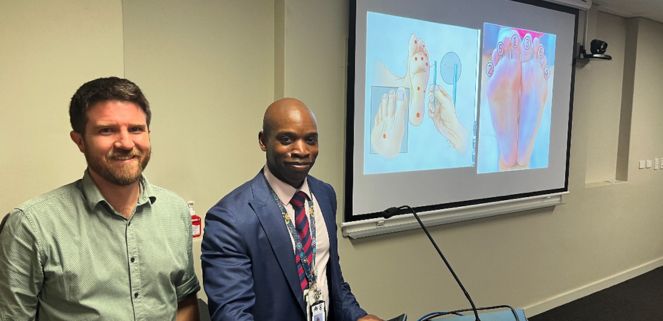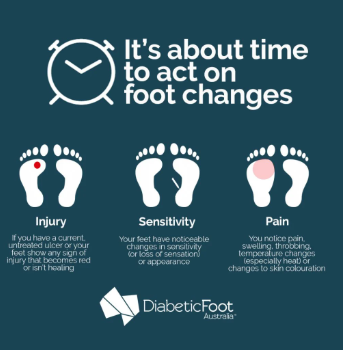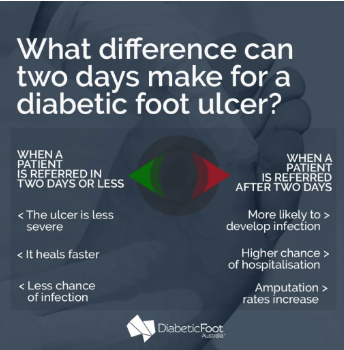Extra help for complex foot wounds

A new weekly clinic and phone hotline has opened at Armadale Health Service (AHS) to treat patients with complex foot wounds.
This service brings together vascular surgeons from Royal Perth Hospital, as well as podiatrists and experts in Infectious Disease.
Consultant Vascular Surgeon Dr Femi Oshin implored general practitioners (GPs) to refer patients with active high-risk complications to the hospital as soon as possible.
“A foot ulcer can become infected which increases the risk of amputation and, if not treated quickly and effectively, the possibility of early death. If the circulation to your feet is poor, this further increases these risks,” he said.
Foot ulcers are a common complication of diabetes.
Femi said rather than just trying to remove any "bad bits" of the foot, the focus should be on retaining limb function and limb preservation.
"Once we see a patient they are likely to be patients for life. We don't cure people. We give them as many ulcer-free days as possible."
He urged GPs to have a "low index of suspicion" and refer early.
"If your patient has a foot ulceration, refer them to the hospital for assessment and treatment. When they are in remission, we will hand the patients back to you for ongoing communtiy care. We are always here for specialist advice and support."
The AHS Podiatry Department also provides clinical services to inpatients and outpatients including the following clinics:
- Outpatient/inpatient podiatry (daily)
- Multidisciplinary foot ulcer (weekly)
- Community rehabilitation (weekly)
Outpatient referrals are open to local residents aged 16 and over with an active foot concern such as foot ulcer, infection, gangrene or Charcot Neuro-osteoarthropathy.
The new weekly multidisciplinary foot ulcer clinic helps manage complex foot wounds with advice and treatment from a team of senior podiatrists, Vascular Surgeons Dr Olufemi Oshin, Dr Fernando Picazo and Dr Vaux Robertson, and Infectious Disease Physicians Dr David New and Dr Lakshana Kalatharan.
High-risk foot ulcers can be categorised into three different types:
- Neuropathic ulcerations due to severe nerve damage commonly seen in diabetic patients
- Ischaemic ulcerations due to peripheral arterial disease
- Neuro-Ischaemic ulcerations
The main symptoms of diabetic foot infection include redness, warmth, swelling, increased or new pain, and pus.
“Patients with these symptoms should seek urgent attention as infection can spread very quickly,” Chris said.
 |
 |

